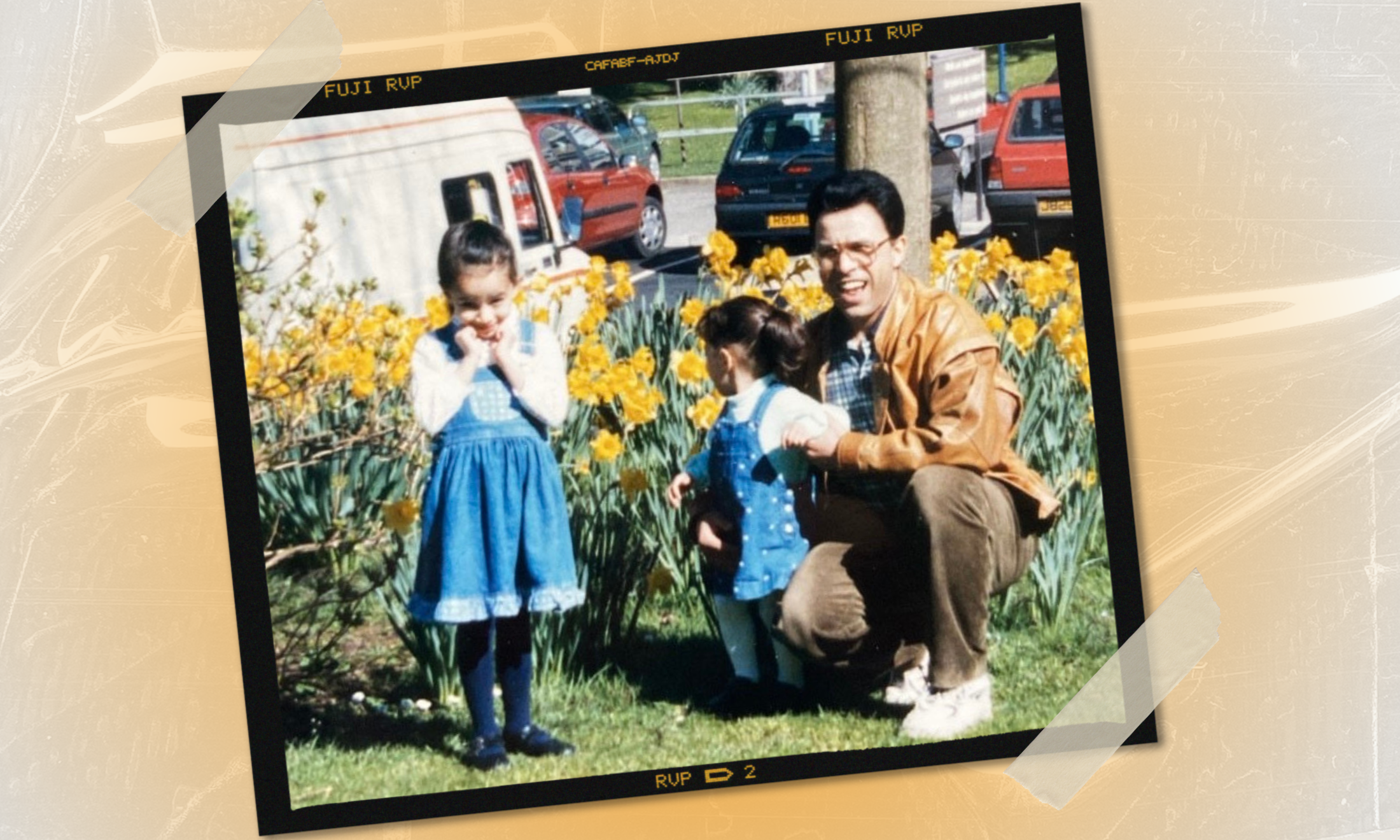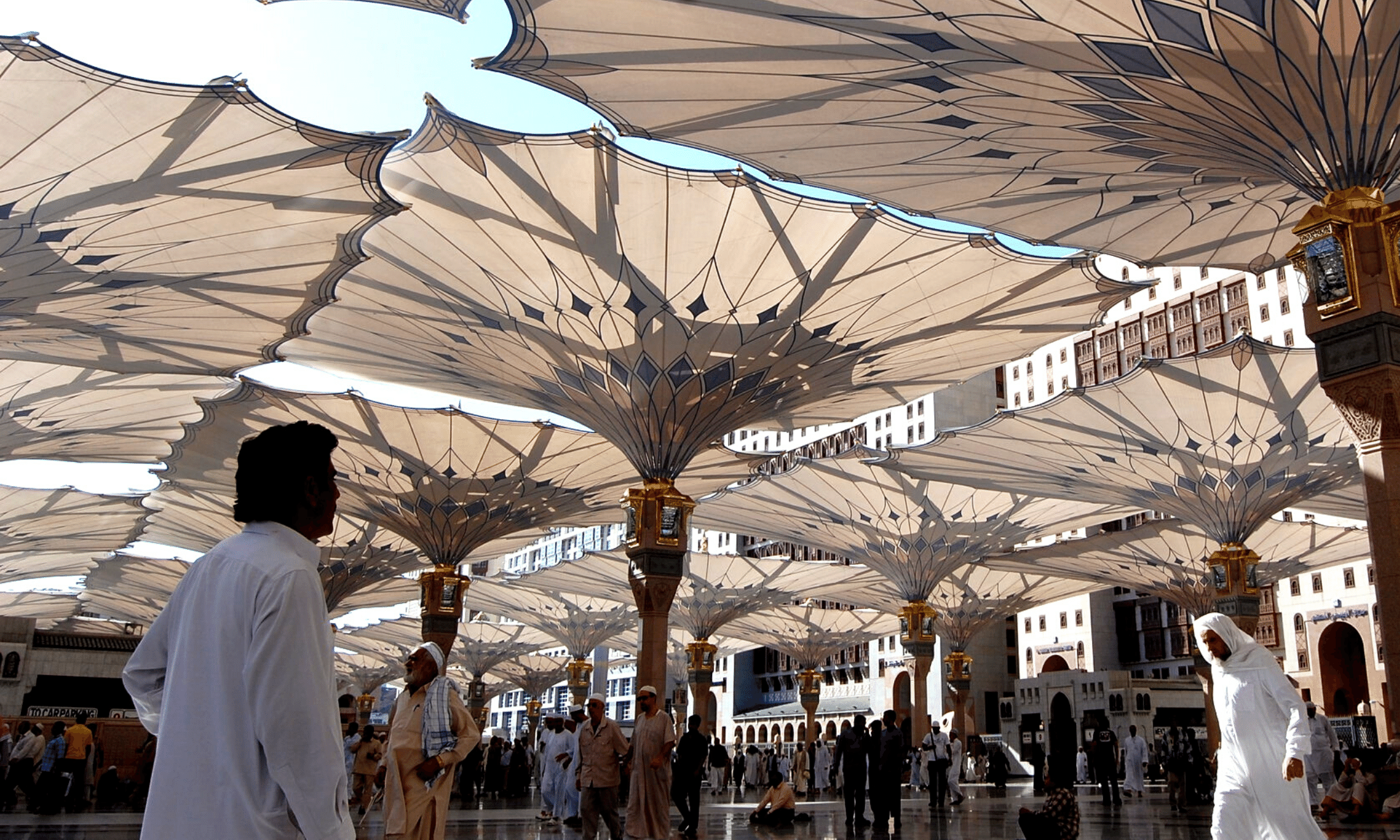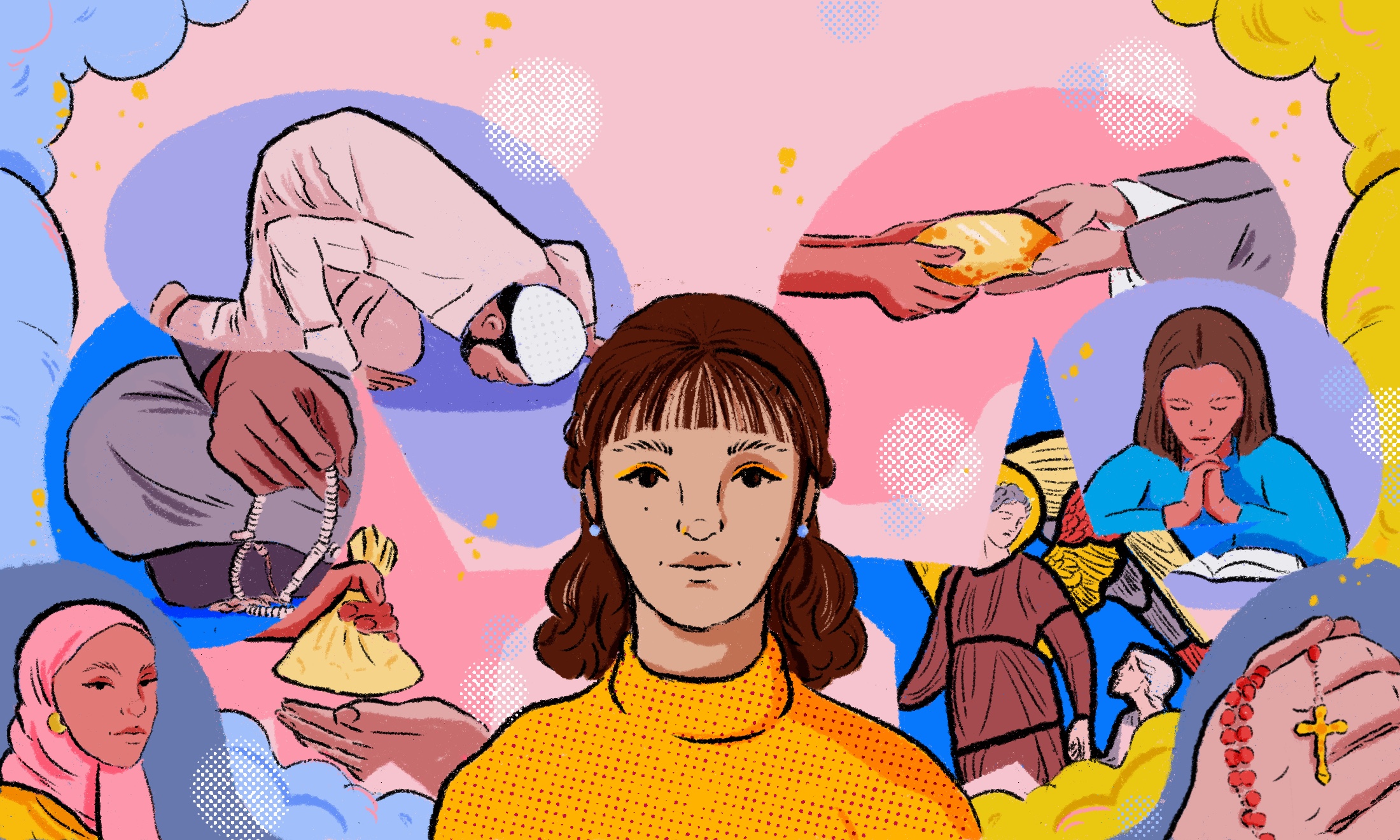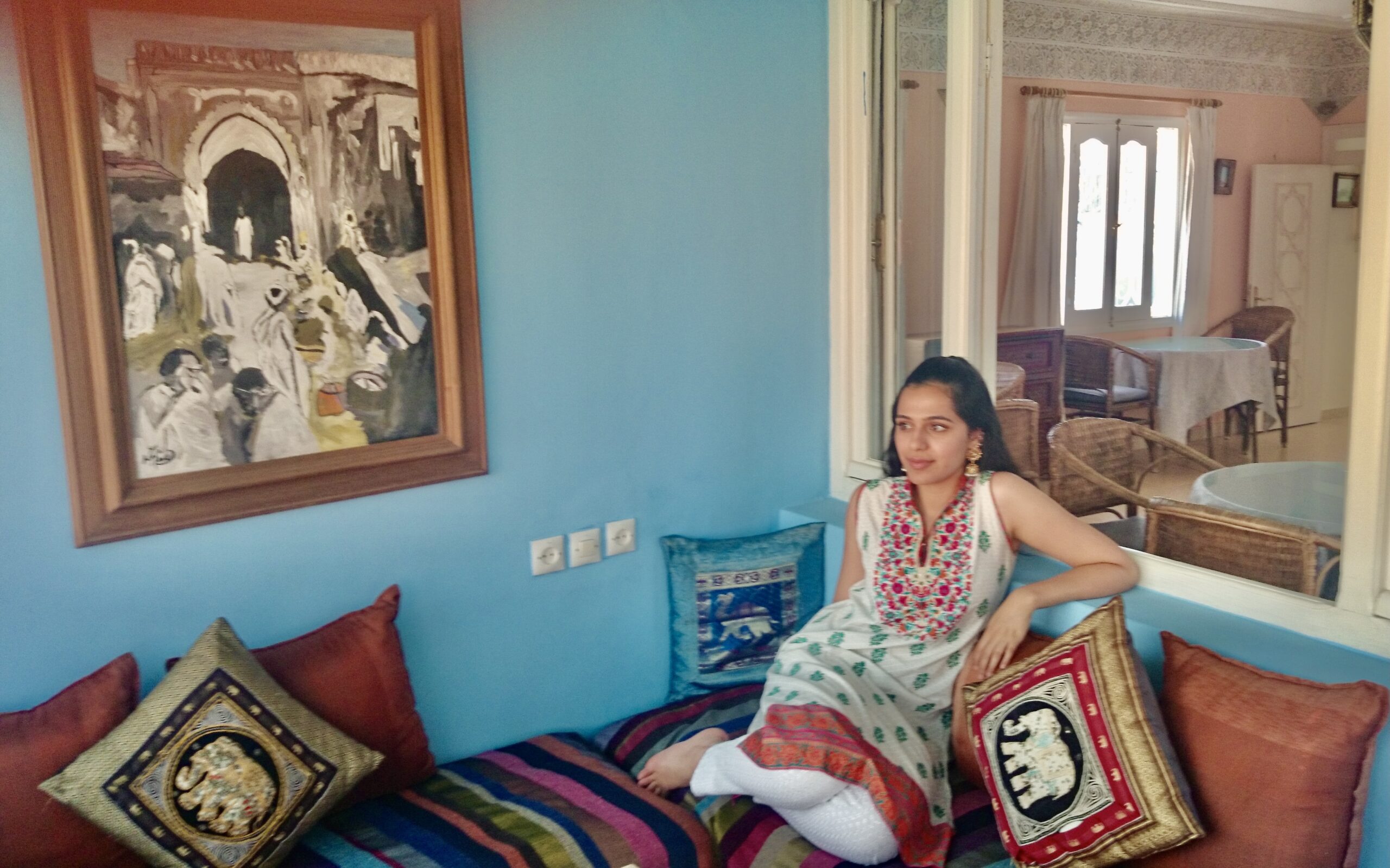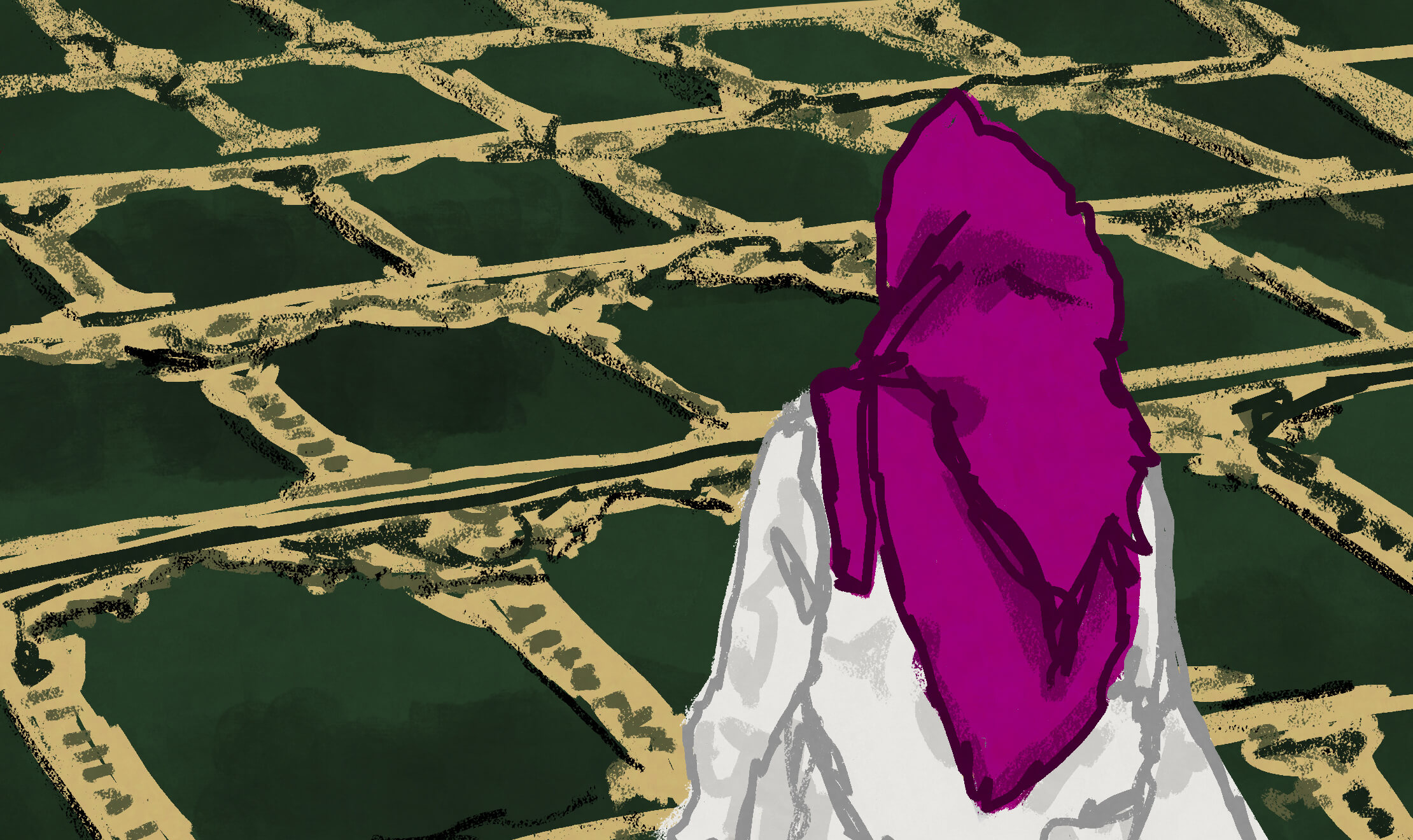
Diyora Shadijanova
Why I’m pretending to be a practicing Muslim
Most people who grow up to realise they're not religious, usually stop practising their faith, so why is Zahra still keeping up the charade?
Zahra Khozema and Editors
07 May 2021
Every year before Ramadan begins, my inner hoarder comes out, and I start stockpiling granola bars and sour gummy bears in my underwear drawer. When my mum takes her afternoon nap before iftar, I lip-lock the bathroom faucet and stuff my face in my secret stash. The trick, I’ve learned, is to sandwich wrappers between books, so there is no evidence in the bin.
At first, I felt guilty for putting on this pious act of pretending to fast in front of my family, but after almost a decade of faking it, it’s become second nature.
Islam has always been a significant part of my life, at least culturally. Growing up in a Muslim household in Pakistan shaped much of my world. Religion was so ingrained that it dictated the whens of family gatherings and the wheres of vacations. Looking back, I did enjoy aspects of it. If attending Eid prayers made my parents happy, seeing my friends at the mosque made me happy. If pilgrimage to shrines in Iraq brought them peace, getting a window seat on planes did the same for me.
Religion also provided my family and me with an automatic community as newcomers to Canada. Folks from our small Toronto mosque forwarded my parents job openings and took us on halal neighbourhood grocery shop tours. They made us feel accepted in a country that loved to remind us of our differences. Everyone at the mosque immediately became my uncle or aunt even though we had no blood relation. We all shared the immigrant experience. With no other family members in Canada, the mosque quickly became our support system. It was the one place I didn’t have to try to fit in, until I did.
“When my mum takes her afternoon nap before iftar, I lip-lock the bathroom faucet and stuff my face in my secret stash”
In my mid-teens, as I came to terms with my community’s support for Female Genital Mutilation/Cutting (FGM/C), a procedure I underwent as a child, I felt the structure and rigidity of organised belief slip. From research, I knew this practice wasn’t a part of Islam, but I couldn’t help resent a community that co-opted religion to endorse sexual trauma towards women.
I wanted so badly to focus on just my relationship with God, but kept feeling like a hypocrite at lectures that preached peace and inclusivity while some elders made homophobic and misogynistic remarks on the sidelines. With that said, I still adore and support those in my community who find a way to separate their faith from these toxic normalised beliefs. For my mental health, I just needed to accept that I wasn’t there yet and may never be.
I now identify as a closeted spiritual-but-not-religious person. For me, this means not denying the possibility of a higher power that created this universe but also not assuming having a mimosa at brunch or getting a cute flower tattoo will make said power hate me. The label may sound like a liminal space for the confused, but it’s a sweet spot for those who have been fed the ‘atheism equals hell’ pill their entire lives. As I continue to find my place in faith, embracing the word ‘spiritual’ also leaves a crucial door open if I ever feel inclined to religion at a later point in my life.
“These white lies put a band-aid on a relationship with my parents that never quite healed in childhood”
Although I now work in the UK, time zones away from my family in Canada and Pakistan, I maintain the faith charade, whether that’s by mouthing random Beyoncé lyrics when praying during mosque events or sending my mum hijab selfies when she calls to wake me up for morning prayers. Even from oceans away, I filter all mentions of alcohol from my social accounts, carry a long-sleeved jacket in 30-degrees in case I run into a family friend while donning a tank top and introduce all male friends as gay to my mum.
These white lies put a band-aid on a relationship with my parents that never quite healed in childhood. As immigrants, a lot of their time was spent providing for us, leaving not much to develop familial bonds. When the rare occasions for conversations did rise, I kept my mouth shut out of fear that I’d blurt out details of non-gender segregated parties or boys I fancied.
But religion has always been there to absorb the space left behind by language, even if it was spoken at me instead of with me. My parents used religion as a scapegoat to teach us manners and purpose. Islam was their way of exposing us to our roots and filling the parental gap.
“Deep down, I think my mum knows I’m a phoney”
Deep down, I think my mum knows I’m a phoney. It’s only a matter of time our tugs over wearing modest clothing or eating halal food will evolve into feuds about choosing a partner or the way I want to raise my kids someday. But until then, I’m happy showing everyone else a world through religion-coloured glasses.
In the age of post-truth, where facts and opinions are at a constant stand-off, I acknowledge the importance of honesty. But exposing my truth may backfire in religious settings, where emotions run high. Besides, my ability to assimilate for the sake of my loved ones is no longer a burden because I know that there is no one right way to practice religion. If Islam has taught me anything, it’s that our intentions matter most.
There are days when I want to scream the differences between my parents and I across continents, but then I think about all the 5am phone calls cloaked as check-ins I may no longer receive. So maybe faking faith doesn’t bring me closer to God (if there is one), but for now, it keeps me close to the ones I love.


